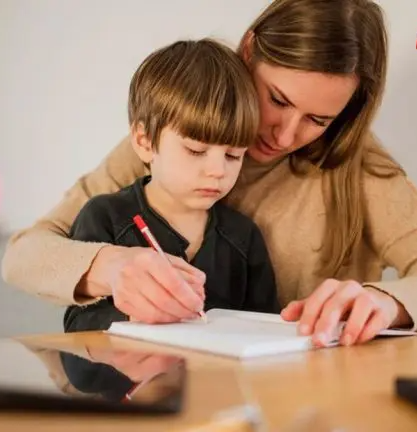How to discipline a 1 year old child Nowadays, with the birth of a child the responsibility of parents has doubled. In fact, people's families used to live together till about 30 years ago, when the elders of the family took care of the children, nurtured them, fed them, exposed them to new things and taught them discipline. But nowadays, when families have become smaller in cities, the task of disciplining children has also fallen on the shoulders of parents.
You must have often seen in nuclear families that when children are small, parents take everything lightly. Many times a child gets angry and throws things or to express his anger, the child leaves everything and stands in a corner. In such a situation, parents often start scolding the child in anger or raise their hands.
But it is not right to raise hands on children in this way, because instead of learning, children become stubborn. I am a mother myself and my son also used to behave like this, but then I learned from my mother that such habits can be stopped by just teaching discipline instead of scolding the child. If you are a first time mother like me, then don't wait till your child goes to school to teach discipline, rather teach him things from the age of 9 months, make it a habit and follow discipline throughout his life.
Why is it important for a 1 year old child to learn discipline? – How to discipline a 1 year old child
According to Dr. Tarun Anand, 'If children are taught discipline from the age of 9 months to 1 year, it can help them live a balanced life throughout their life. Parents may face some difficulty in teaching discipline to their children, but as the child grows, you will start realizing that your child listens and understands better than other children.
1). set boundaries
At 1 year old, a child learns to do new activities. In this situation the child wants to do everything that his parents or people around him are doing. Set some limits when your child is doing such activities. If the child is trying to imitate cooking, explain through gestures or words that knives and sharp objects should not be used. If you don't like what your child is talking about, use simple words like “no” or “stop.”
2). divert attention
If your child is moving toward something they shouldn't be doing, bring their attention back to a toy or their favorite activity. By doing this the child's mind gets distracted and he will not do this.
3). appreciate small things
According to doctors, small children want their parents to praise them when they do small activities. For example, if your baby is learning to walk and stops after taking four steps, encourage him by clapping. If your child eats green vegetables, make him smile. Such small praises make the child happy and he moves forward to do new things.
4). be patient
New parents are often in a hurry to learn everything quickly, but this is not the case in real life. It takes time for a child to learn discipline and new habits, so try to keep the mind calm. Keep in mind that a child neither learns nor changes good or bad habits in a day, it is a continuous process, which you have to do continuously, only then its effect will be visible.
 look news india
look news india
